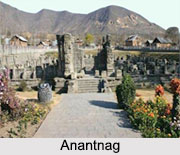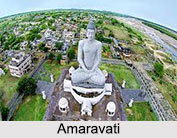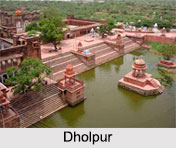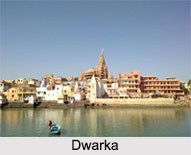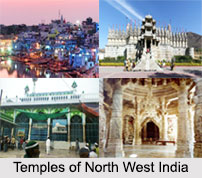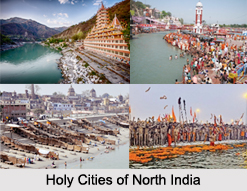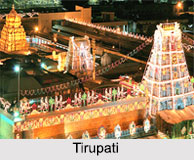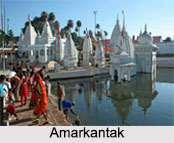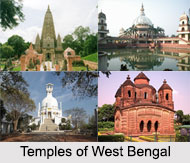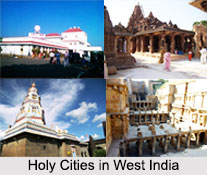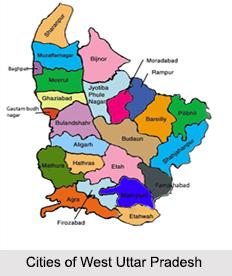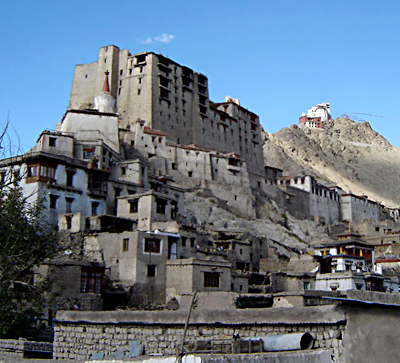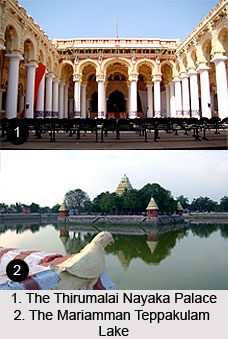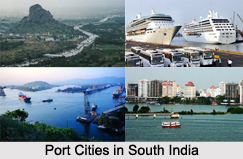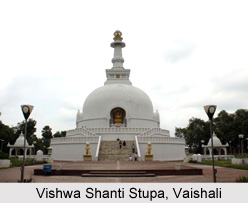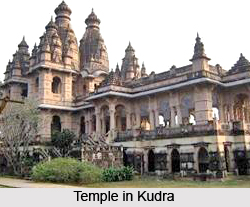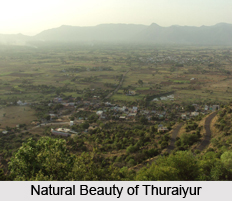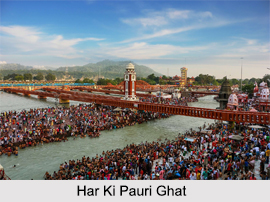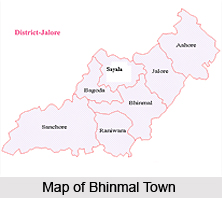 Bhinmal was earlier named as `Bhillamala` and it was also known as Shrimal. The name Bhinmal was actually derived from `Shrimal`. It is a town situated in the Jalore district of the state of Rajasthan. Bhinmal is an ancient city of India and it is located approximately 72 km south of Jalore. It was the capital city of ancient Gujarat. Bhinmal is the birth place of renowned mathematician and astronomer Brahmagupta. This ancient town was basically laid out in a square shape comprising 84 gates. In its north there was the Jalori Gate, in south Laxmi Gate, in the west was Sanchori Gate and in the east there was the Sun Gate. At Bhinmal city, there were a number of temples. The temple of Jagatsvami was one of the earliest and most famous temples Of Rajasthan. This temple was constructed during the time of Gurjara Pratiharas who were the sun worshippers. In 1310 AD, Ala-ud-din Khilji completely destroyed Bhinmal. Bhinmal was always considered as a great learning centre. And the scholars from Bhinmal were very popular and they were known far and wide.
Bhinmal was earlier named as `Bhillamala` and it was also known as Shrimal. The name Bhinmal was actually derived from `Shrimal`. It is a town situated in the Jalore district of the state of Rajasthan. Bhinmal is an ancient city of India and it is located approximately 72 km south of Jalore. It was the capital city of ancient Gujarat. Bhinmal is the birth place of renowned mathematician and astronomer Brahmagupta. This ancient town was basically laid out in a square shape comprising 84 gates. In its north there was the Jalori Gate, in south Laxmi Gate, in the west was Sanchori Gate and in the east there was the Sun Gate. At Bhinmal city, there were a number of temples. The temple of Jagatsvami was one of the earliest and most famous temples Of Rajasthan. This temple was constructed during the time of Gurjara Pratiharas who were the sun worshippers. In 1310 AD, Ala-ud-din Khilji completely destroyed Bhinmal. Bhinmal was always considered as a great learning centre. And the scholars from Bhinmal were very popular and they were known far and wide.
History of Bhinmal
Bhinmal, the capital city of ancient Gujarat was initially known as Bhillamala. It was once visited by Hieun Tsang in around 641 A.D. At that time, Bhillamala was considered as the capital of the popular Gurjara kingdom. The King of Bhillamala was also a Kshatriya, who was popularly celebrated for his knowledge and good qualities. The king was also a follower of Buddhism. Interestingly, he was very young. In this city there was only one Buddhist monastery. Ala ud din Khilji damaged Bhinmal in 1310 AD after conquering Jalore. Before this incident, Shrimal was a leading city of the northern region of India. Several mid-15th century historical chronicles like, `Kanhadade Prabandha` gives complete description of various Islamic attacks on this ancient Indian town.
Geography of Bhinmal
Bhinmal city is situated at 25 degrees north 72.25 degree east. This city has a normal altitude of 146 metres.
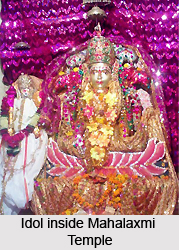 Education in Bhinmal
Education in Bhinmal
There is a degree College in Bhinmal, which is known as G.K Gowani Government College. This college is affiliated to Maharshi Dayanand Saraswati University, Ajmer and it is also accredited by the National Assessment and Accreditation Council (NAAC). Moreover, Bhinmal has three higher secondary schools and there are around 45 primary and middle schools in this city.
Administration of Bhinmal
Bhinmal town is actually one of the main sub-divisions of Jalore District. This sub division has three main `tehsils` and these are Bhinmal, Sanchore and Raniwara. There are four major Panchayat `samitis` and these are Bhinmal, Sanchore, Raniwara and Jaswantpura. Bhinmal sub-division is mainly under the jurisdiction and authority of Deputy District Collector. Here the civic affairs are governed by the Bhinmal Municipal Council (BMC).
Economy of Bhinmal
Economy of Bhinmal is principally based on animal husbandry and agriculture. The market for agricultural produce of the surrounding areas in located in Bhindi. This city has the `Krishi Upaj Mandi Samiti` (Agricultural Produce Market Committee). The warehouses of the Food Corporation of India are also in this town. It is the main supply point for the major agricultural infrastructures like seeds, tractors, motors, fertilisers, pesticides, etc. However, in Bhinmal, there is no large or medium industry. This town is popular for its small scale industries like those of handloom cloth, marble cutting and polishing, skimmed milk powder, granite slabs and tiles, mustard seed crushing, butter and ghee, leather shoes and more. Bhinmal is more popularly known for its fine quality of embroidered leather shoes.
Tourism of Bhinmal
Bhinmal is reputed for its innumerable Hindu and Jain temples, most of which have been present since ancient ages. Shantinath Jain Temple, Mahavira Swami Jain Temple, Padmaprabhu Jain Temple, Parshvanatha Jain Temple, Chomukhji Jain Temple, Parshvanatha Pratap Sarai Jain Temple, Gaudi Parshvanatha Jain Temple, Jeerawalla Parshvanatha Jain Temple and Riddhi-Siddhi Parshvanatha Jain Temple are some of the beautiful Jain temples based here. Hindu temples of Bhinmal are Chandinath Temple, Mahalaxmi Temple, Fafariya Hanuman Temple, Neel Kantha Mahadev Temple, Baba Ramdevji Temple, Vishwakarma Temple, Varaha Shyam Temple and many more.
